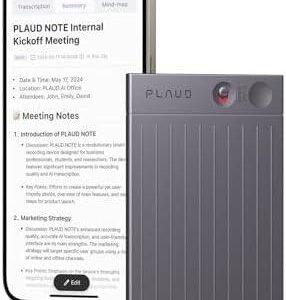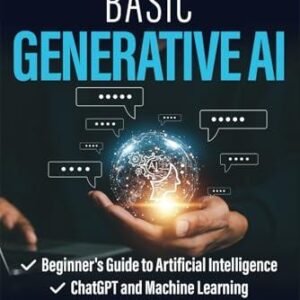In today’s fast-paced business environment, organizations are increasingly leveraging technology to streamline operations and enhance workforce effectiveness. Among the most transformative advancements is the integration of artificial intelligence (AI) into human resources (HR) practices, particularly in recruitment and training. As companies strive to adapt to evolving market demands, AI offers unprecedented capabilities to identify talent, personalize learning experiences, and improve employee engagement. This article explores the pivotal role of AI in reshaping HR functions, highlighting how intelligent systems not only optimize recruitment processes but also facilitate continuous development and performance management. By embracing these innovations, businesses can cultivate a more agile and skilled workforce, ultimately driving competitive advantage and fostering a culture of excellence. Join us as we delve into the technologies that are reshaping HR and the strategic implications for organizations looking to thrive in the digital age.
Table of Contents
- Harnessing AI for Enhanced Recruitment Strategies
- Optimizing Candidate Experience through Intelligent Automation
- Leveraging Data Analytics to Personalize Training Programs
- Future-Proofing Workforce Development with AI-Driven Solutions
- Key Takeaways
Harnessing AI for Enhanced Recruitment Strategies
In the competitive landscape of recruitment, leveraging AI technologies has become essential for organizations aiming to attract the best talent. By automating various tasks, AI tools enhance the efficiency and accuracy of the recruitment process. Key advantages of these technologies include:
- Resume Screening: AI algorithms can quickly parse through hundreds of resumes, identifying the best candidates based on predefined criteria.
- Candidate Matching: By utilizing predictive analytics, AI can match candidates not just based on skills, but also on cultural fit, leading to higher retention rates.
- Chatbots for Candidate Engagement: AI-driven chatbots enhance candidate experience by providing instant communication and updates throughout the hiring process.
Moreover, AI contributes significantly beyond recruitment by aiding in employee training and development. Organizations can use AI to create personalized training programs that adapt to each employee’s learning pace and style, fostering more effective skill acquisition. For instance, AI-powered platforms can offer:
| Feature | Benefit |
|---|---|
| Virtual Reality (VR) Simulations | Real-world practice in a risk-free environment. |
| Data Analytics | Insights into training effectiveness and areas for improvement. |
This innovative use of AI not only streamlines the onboarding process but elevates the overall employee experience, ensuring that talent is not only acquired but also continuously developed within the organization.
Optimizing Candidate Experience through Intelligent Automation
Enhancing the journey for candidates not only improves their perception of the organization but also streamlines the recruitment process. By leveraging intelligent automation, companies can provide a seamless experience that caters to the needs of potential hires. Key automation solutions that contribute to this transformation include:
- Chatbots: Offering 24/7 assistance to answer candidate queries.
- Personalized communications: Tailoring messages based on candidate status and preferences.
- Application tracking systems: Providing real-time updates on application status to keep candidates engaged.
Furthermore, intelligent automation enables HR teams to gather and analyze data, helping to refine the candidate experience continuously. By implementing a feedback loop utilizing automated surveys, organizations can quickly identify areas for improvement. Simple metrics such as response times and candidate satisfaction scores can be compiled in a streamlined manner:
| Metric | Before Automation | After Automation |
|---|---|---|
| Response Time | 72 hours | 12 hours |
| Candidate Satisfaction Score | 70% | 90% |
Leveraging Data Analytics to Personalize Training Programs
In today’s dynamic workplace, data analytics serves as a pivotal tool in crafting tailored training programs that resonate with individual employee needs. By analyzing employee performance data, feedback, and learning progress, organizations can identify the specific skills and knowledge gaps that hinder performance. This insightful approach allows HR professionals to create personalized learning paths that maximize engagement and effectiveness, ensuring that each employee receives the training that aligns with their career development goals. Key strategies for leveraging data analytics include:
- Utilizing performance metrics to tailor training initiatives.
- Collecting employee feedback to refine training content.
- Implementing predictive analytics to forecast future training needs.
Furthermore, integrating Artificial Intelligence with analytics can create immersive training experiences. AI can parse vast datasets to devise training modules that adapt in real-time based on user interactions. This means that employees who struggle with specific content can receive additional resources or alternative presentations aimed at enhancing comprehension. The result is a learning environment where data-driven decisions create a continuous feedback loop, ensuring the alignment of training with both organizational goals and individual learner aspirations. Examples of AI-powered training personalization include:
| Personalization Method | Description |
|---|---|
| Adaptive Learning | Tailors content based on real-time performance analytics. |
| Chatbots | Provide 24/7 assistance for training-related queries. |
| Gamification | Engages learners through game-like elements based on progress data. |
Future-Proofing Workforce Development with AI-Driven Solutions
As companies navigate the complexities of a rapidly evolving job market, harnessing the capabilities of AI-driven solutions for workforce development becomes vital. These technologies not only streamline recruitment processes but also enable personalized training experiences that align with individual career paths. AI can analyze vast datasets to identify skill gaps and recommend targeted learning opportunities, ensuring that employees remain competitive in their fields. This proactive approach to talent management empowers organizations to build a more adaptable workforce, equipped to handle future challenges.
Moreover, AI’s predictive analytics can provide insights into employee performance and engagement, allowing HR professionals to implement tailored development programs that resonate with team members. By leveraging data-driven strategies, companies can foster a culture of continuous learning and improvement. This is crucial in retaining top talent, as employees are more likely to stay with organizations that invest in their growth. Key benefits include:
- Customized Learning Paths: Leveraging AI to create personalized development plans for each employee.
- Enhanced Recruitment Accuracy: Utilizing AI to sift through resumes and identify the best candidates quickly.
- Real-Time Skills Assessment: Implementing tools for immediate feedback on employee competencies.
- Data-Driven Decision Making: Analyzing workforce data for informed HR strategies.
Key Takeaways
the integration of artificial intelligence into HR processes is not merely a trend but a transformative shift that has the potential to redefine recruitment and training landscapes. By harnessing AI’s capabilities, organizations can enhance their ability to attract top talent, streamline hiring processes, and provide personalized training experiences that cater to individual employee needs. As businesses continue to navigate a competitive environment, those that embrace AI tools will likely gain a significant advantage, fostering a more efficient, effective, and engaging workplace. To remain at the forefront of this evolution, HR professionals must remain adaptable, continuously educating themselves on emerging technologies, and strategically implementing AI solutions that align with their organizational goals. Ultimately, the future of human resources will be defined by those willing to innovate and leverage technology to empower their most valuable asset: their people.





